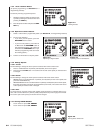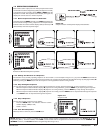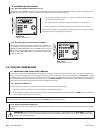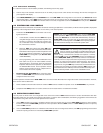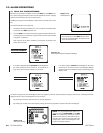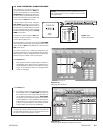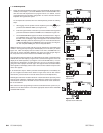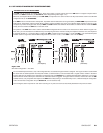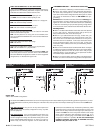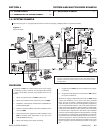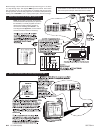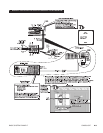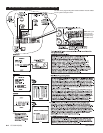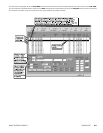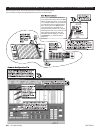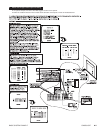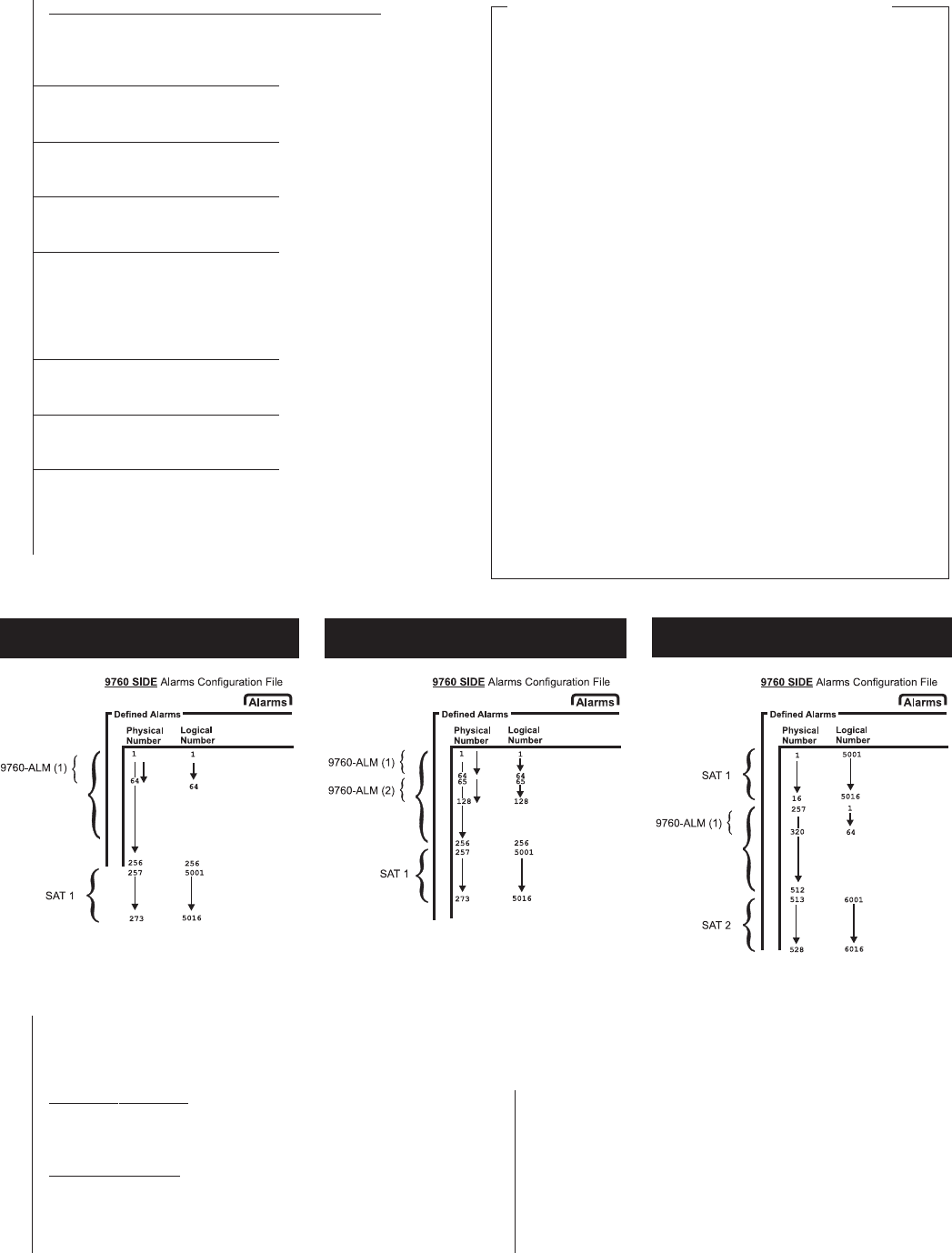
3-10 C1510M-A (2/03) SECTION 3
SATs and ALARM Units on the Same Node
Alarm units and SAT units both utilize the same 9760 Alarm Con-
figuration File. The following statements compare and contrast
similarities and differences between the two units:
One Alarm unit can handle 64 alarm inputs per unit.
One SAT unit can handle 16 alarm inputs per unit.
Alarm units (up to four) may be daisy-chained on a single port.
SAT units cannot be daisy-chained.
Alarm units can interface 256 alarms per port.
SAT units can interface 16 alarms per port.
Up to 10 ports may utilize Alarm units, for a total of 10 X 256 or
2560 hard-wired alarms/system.
SAT units may attach to as many ports as are available, how-
ever, the combined ALARM-SAT mix cannot exceed 2560 hard-
wired alarms.
Alarm units utilize alarm base addressing.*
SAT units do not.
Alarm units are added to the system on a 4 per port basis.
SAT units are added on a 1 per port basis.
The important thing to consider between ALARM and SAT units
is what they share or have in common, which is the ALARM file.
Several ALARM file configurations, based on various equipment
configurations, are illustrated in Figure 3-26.
Figure 3-26
Various SAT-ALARM Configurations
As stated earlier, SAT alarm definitions do not use nor depend upon alarm base addressing. So the following question might arise: If you had
one ALARM unit that used only the first 48 inputs of the Alarm file, could you take unused inputs 49 through 64 and use them as SAT alarm
inputs?
One SAT unit and one ALARM unit on the
same node:
The short answer: Yes, you can use any alarm input for the
SAT as long as it is not actually configured for use by any other
piece of equipment.
The long answer: If you are not pressed for port space, it is
not a good thing to do. The obvious problem is that (1) you create
an alarm assignment overlap from the 9760-ALM’s point of view.
To the 9760 ALARM configuration file, an alarm is an alarm. It
doesn’t really care where it originates. For the 9760-ALM unit,
however, that is a different story. That leads to problem (2), which
is that there now is one more item of information to track. If more
alarm units are daisy-chained to the original port, will anyone re-
member the SAT unit? If the front panel switches of the single
alarm unit are changed to take advantage of those last 16 un-
used inputs, is anyone going to remember that the SAT unit is
using those numbers? If possible, do not use alarm-input
numbers already allocated to ALARM unit use,
whether they are used or not.
One SAT unit and two ALARM units on the
same node:
Two SAT units and one ALARM unit on the
same node:
■ Fact 1: Alarm base addressing is used with alarm units only.
■ Fact 2: The number entered in the Alarm Base Number box
(for alarm units) corresponds to a number in the physical alarm
input column of the Alarm configuration file (See Figure 2-9,
Alarm
File.
Ignore its mentioned use there for SAT SIDE menu pro-
gramming).
Definition: The Alarm Base Number defines the starting point
from which alarm “counting” begins for alarm base addressing as
applied to alarm units. Alarm units utilize alarm base addressing
in “bite-size” increments (per port) of 256, spanning a range whose
count starts at the value entered into the Alarm Base Number box.
Working Rules:
■ Rule 1: The Alarm Base Number for the first alarm unit attached
to a CC1 port is set to 1. Subsequent alarm units (up to four) are
daisy-chained off the first unit on the same port.
■ Rule 2: If you add another alarm unit (say, number five), you
must attach it to a different port. You must also enter a new num-
ber to count from in the Alarm Base Number box for the port to
which this alarm unit is attached. In this case, that number would
be 257. Subsequent alarm units (up to four, total, for this port)
would utilize alarm addresses 257-512 (accommodating 8 Alarm
units on 2 ports).
■ Rule 3: The combined total of hardwired SAT-Alarm unit inputs
or addresses cannot exceed 2560 per system. The number (2560)
was originally derived from the use of four alarm units per port
(256 total) within a 10 port limit (256 x 10). At present the number
of hardwired inputs allowed is still 2560.
■ Rule 4: It is best to define alarms for Alarm units before those
for SATs, as is done in the first two configuration examples below.
* INFORMATION BOX – Alarm Base Addressing



